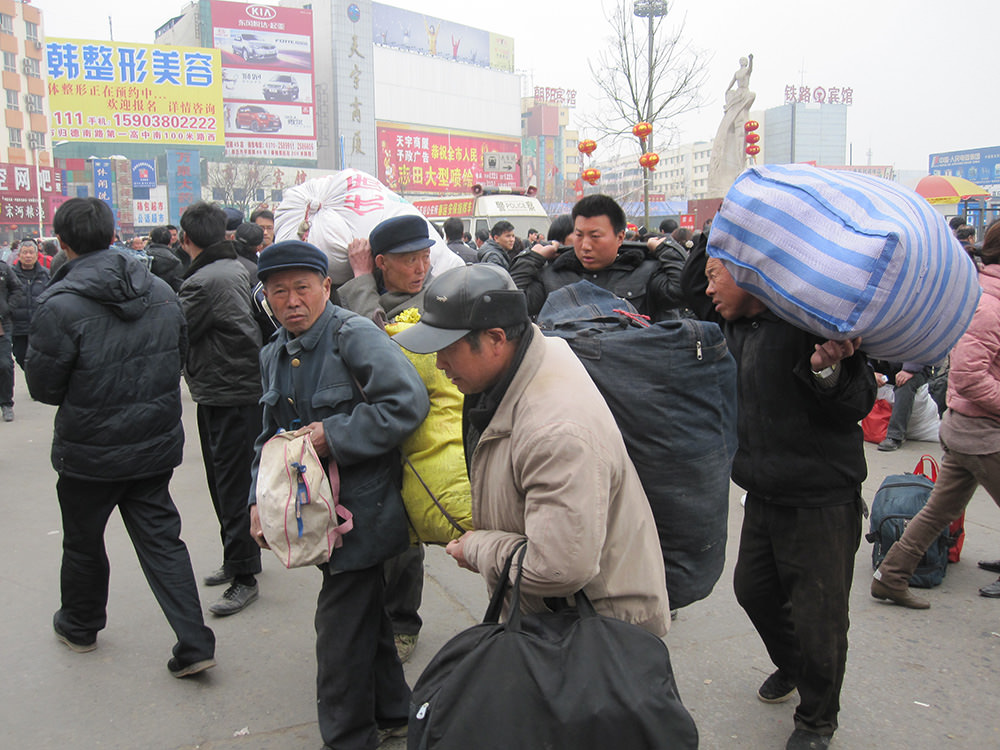China’s Residence Registration System: An Overview
China’s “hukou” system is a residence registration system that essentially functions as a citizenship document, but designates one’s citizenship to a specific city or town. Under this system, individuals are classified as holding either an agricultural or non-agricultural hukou status, with the latter conferring more privileges. Originally implemented to restrict rural-urban migration, the hukou system allocates access to social services like education, healthcare, and insurance based on one’s place of registration.
A Tool for Population Control
The primary purpose of establishing the hukou system was to curb large-scale movement of people from rural villages to urban centers. During Mao Zedong’s rule in the 1950s, strict travel restrictions were in place to prevent peasant uprisings. One needed recommendation letters and their hukou document to travel or stay elsewhere. This helped maintain political and social stability during times of economic uncertainties and power transitions.

Widening Disparities Due to Unequal Development
Economic reforms from the 1980s saw accelerated growth in coastal cities, fueling major migration flows. While this provided job opportunities, the government struggled to accommodate the influx. Migrants faced barriers to basic services available to local hukou holders. Furthermore, social welfare benefits varied greatly based on one’s registered location, worsening disparities between prosperous versus underdeveloped areas.
Obstacles Posed by the Hukou System
Restricted Freedom of Movement
By dictating one’s permanent residency, the hukou system undermines people’s freedom to live and work where they choose. Even now, it remains very difficult to transfer one’s hukou registration between localities, unless certain criteria are met. This traps many in their places of birth without options to relocate for better prospects.
Lack of Equal Access to Public Services
Migrants moving to cities without local hukou status cannot access subsidized healthcare, education for children, or social insurance. Those without official registration also face housing insecurity and risks of detention amid periodic crackdowns. The system therefore breeds an underclass of disenfranchised urban residents.
Intergenerational Impacts of Non-Registration
Some vulnerable groups like unregistered “black children” face lifelong disadvantages due to lack of hukou. Without basic documentation, their chances of social mobility are severely limited no matter where they reside. This denies whole communities their basic rights and integration into mainstream society.
Barriers to Social Mobility and Career Development
The hukou system cultivates an unlevel playing field where achievements and qualifications often count for less than one’s place of origin. Migrants struggle to access better jobs, take competitive exams or pursue higher education in destination cities. This wastes human potential and undermines China’s growth ambitions.
Rationale for Hukou Reform
While population control was a priority in the past, rapid urbanization trends show the system now conflicts with social and economic realities. Most large cities face acute labor shortages, even as rural unemployment persists. Some have started relaxing rules to attract skilled migrants, but the process remainspiecemeal and difficult to navigate for ordinary people.
With informatization and other monitoring tools now available, authorities arguably no longer need such an intrusive registration mechanism for administrative purposes. A unified, digitized national identity system could achieve the same goals more efficiently without restricting mobility. Many argue it is timely to overhaul or replace the hukou system to eliminate institutional barriers holding back China’s progress.
At the same time, any reform requires cautious planning and coordination to avoid potential downsides like sudden mass migration overwhelming services in key regions. A gradual, phased approach that expand rights and portability for all residents seems most viable. Eliminating deep-rooted inequities will also take sustained efforts across various policies around employment, welfare, healthcare and education.

/GettyImages-625321358-58e24c335f9b58ef7e5529e7.jpg) A Comprehensive Guide to Visiting Casablanca
A Comprehensive Guide to Visiting Casablanca